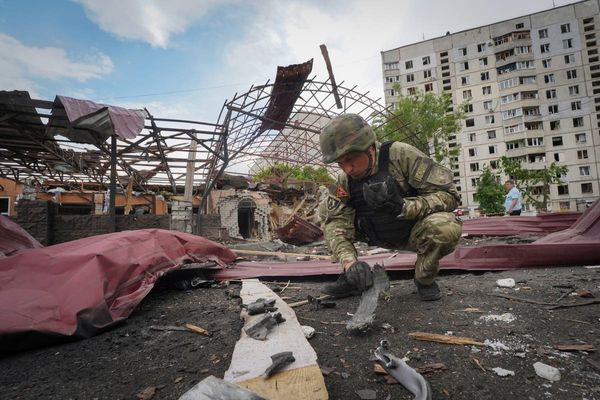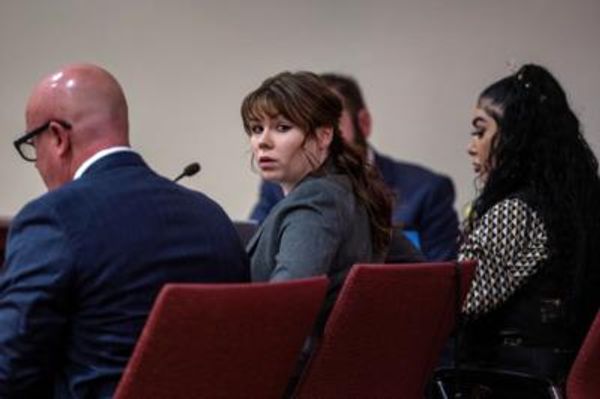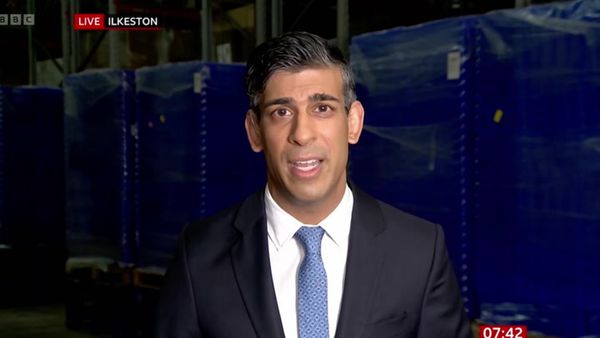
Less than a month out from the Dunkley byelection, the signs on homes are speaking to the big issue dividing the Victorian electorate: “Stop the Great Wall of Frankston.”
The long-running community dispute over height limits in the electorate’s main suburb is set to become a key issue in the 2 March poll, which has been triggered by the death of Labor MP Peta Murphy from breast cancer in December.
The Liberal’s candidate for the seat, Frankston city council mayor Nathan Conroy, has enthusiastically backed plans to construct luxury apartment towers on Nepean Highway overlooking the beach.
They include a 16-storey proposal from Pace Development Group – which was announced two years ago but not approved by council within its required 60-day timeframe – and the 14-storey Harbour building, signed off in late 2022.
While Conroy refused to comment on specific buildings, noting the Victorian Civil and Administrative Tribunal was currently reviewing the Pace application, he said the council’s plan to increase development in the Frankston’s city centre was much needed.
“We are planning for the growth, rather than having it forced upon us. This plan allows for more people to live in Frankston city, but it will also increase vibrancy, safety, shopping options and transport connectivity,” he said.
“It will ensure more people, more houses, more diversity and more jobs – all of which our community desperately needs.”
State Labor MP Paul Edbrooke says the debate over the future of Frankston proves the city has shaken off its reputation as the butt of jokes.
“Gone are the days of Sam Newman coming down to Main Street and asking some really quite vulnerable people silly questions,” he says.
“There is that gentrification happening now and the battle for us is to make sure that we take everyone along for the ride.”
Edbrooke moved to the Frankston area in 2001, when he was stationed there as a firefighter. He said the underinvestment and disadvantage he witnessed then was one of the key reasons he ran for politics, winning the state seat at the 2014 election that swept Labor to power.
Since then, he says the state has poured millions in the area, including into the local train station and Frankston High – now one of the top-performing government schools in Melbourne’s south. Homes within the school’s zone now sell for $50,000 more than those outside.
“That investment has really been the catalyst for developers to become interested in Frankston,” Edbrooke says.
He says much like Melbourne, the city has pockets of incredible wealth and disadvantage.
“We have $15m homes on the Frankston South end, on Oliver’s Hill, then you have the former commission homes in Frankston that you can probably buy for $500,000-$700,000,” he says.
Community group Stop the Great Wall of Frankston has argued the proposed apartments, as well as any future developments along the Nepean Highway, will divide the city. Another group, Advance Frankston, argues it will revitalise the retail precinct, where vacancies remain low post-Covid.
Reverend Tim Costello is part of the former. He says he moved to the area about five years ago and lives across the road from the beach.
“It doesn’t affect me at all if the apartments go up but if you’re on the other side of Nepean Highway, where there are some of the poorer areas of Frankston … they’re blocked from the beach,” he says.
“They will no longer see the foreshore, which currently belongs to everyone at the moment, it will be blocked by these Gold Coast-style apartments.”
As St Kilda mayor in the 1990s, he said he worked to revitalise the suburb’s shopping precinct while resisting a push for high-rise developments.
“It’s just a myth that if we have penthouses for multimillionaires, magically shops will reappear in Frankston,” he says.
Russell Kerr, a former teacher at Frankston High, also lives on the beach and is a member of Stop the Great Wall of Frankston. One of his main gripes with the proposed apartments is that they contain no affordable housing, which he says is desperately needed in the area.
“My granddaughter is 24, she’s a nurse, she would love to be able to afford a unit in Frankston,” he says.
“I would love there to be four- and five-storey units in Frankston that are affordable, near transport, the hospital, the school and the shopping centre, especially for essential workers. That would address the affordability crisis.”
Edbrooke also doesn’t accept that the proposed apartments will help boost housing supply.
“I’m not sure [about council] selling this bullshit that this is going to help with the housing crisis,” he says. “These are luxury apartments. I’m pretty sure that quite a few of them will end up being Airbnbs.”
He’s pushing for a “middle ground” he says will come with further community consultation.
It’s a view shared by the Labor candidate, Jodie Belyea, founder of a local support group for disadvantaged women.
“We need to build more homes in our local area but we also need to build the right kind of homes,” she said.
“I want to see Frankston develop, grow and thrive but it should be through appropriate development.”
The Victorian government’s planning minister temporarily imposed a three-storey limit near the Frankston waterfront, which was updated in October 2023 to 12 storeys upon expert advice.
The interim controls are due to apply until April 2025 and will need to be considered by VCAT when it examines the development applications.
In any event, the suburb will grow, having been identified as one of 10 activity centres in Victoria’s Housing Statement. Its expected the government will assume planning controls for Frankston by the end of 2024, with community consultation on the state’s plan for the city to begin soon.
While Labor currently holds the seat with a 6.3% margin, Dunkley has changed hands several times since it was created in the mid-1980s. In 2019, Murphy won it from the Liberals and then increased her margin in 2022.
Visiting a Mazda dealership in the electorate on Friday, Peter Dutton claimed underdog status and denied the byelection would be a vote on his leadership.
“It’s obviously a byelection because of tragic circumstances with the passing of a sitting member, and in that circumstance, you wouldn’t expect a big swing,” the opposition leader said.
Dutton identified cost of living as the “number one” issue in the seat.
Meanwhile, in Dingley Village on Friday – outside the Dunkley electorate – Anthony Albanese said he was not taking the seat “for granted” despite changes to stage-three tax cuts being well receieved by voters.







